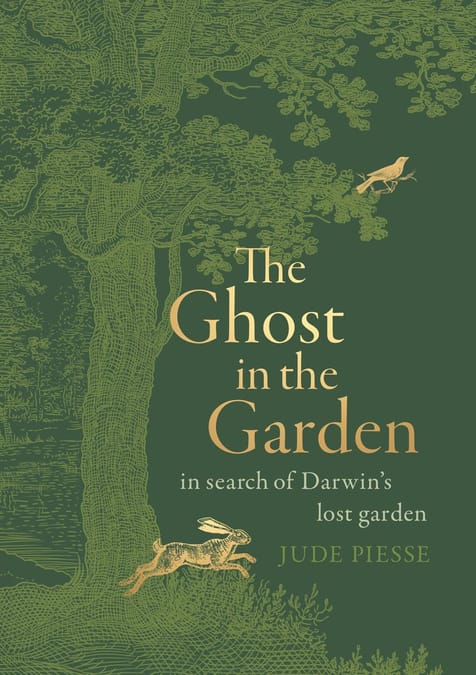The Ghost In The Garden:
in search of Darwin’s lost garden
Overview
The forgotten garden that inspired Charles Darwin becomes the modern-day setting for an exploration of memory, family, and the legacy of genius.
Darwin’s childhood garden at The Mount in Shrewsbury was the site of some of the great scientist’s earliest experiments. It was where, under the tutelage of his green-fingered mother and sisters, and the house’s knowledgeable gardeners, he first examined the reproductive life of flowers, collected birds’ eggs, and began to note down the ideas that would lead to his groundbreaking theory of evolution.
In The Ghost in the Garden, Jude Piesse uncovers the lost histories that inspired Darwin’s work and how his legacy, and the legacies of those around him, live on today.
Details
- Format
- Size
- Extent
- ISBN
- RRP
- Pub date
- Rights held
- Other rights
- Hardback
- 210mm x 148mm
- 336 pages
- 9781913348052
- GBP£20.00
- 13 May 2021
- World English
- The Ruppin Agency
Categories
Awards
- Longlisted for the 2022 Australian Book Design Awards for Best Designed Nonfiction Cover
Praise
‘[Q]uirky [and] gloriously unclassifiable … Ms. Piesse’s The Ghost in the Garden, with its many asides, intensely personal stories, and sometimes delightfully unrelated material … offers a radiant literary analogue for such botanical unpredictability.’
‘A fascinating and very personal book in which Darwin’s relationship to his family’s garden reflects directly on his visionary understanding of the natural world in its entirety. A delight!’
About the Author
Jude Piesse is an academic and writer. She holds an MA in Creative Writing from the University of East Anglia and a PhD in English Literature from the University of Exeter. She has published widely on nineteenth-century literature and culture, including her book about emigration literature, British Settler Emigration in Print, 1832–1877 (OUP, 2016). Though she grew up in Shropshire, she did not discover Darwin’s childhood garden until she moved to Shrewsbury with her young family to take up her first lectureship. She now works as a lecturer in English Literature at Liverpool John Moores University.

